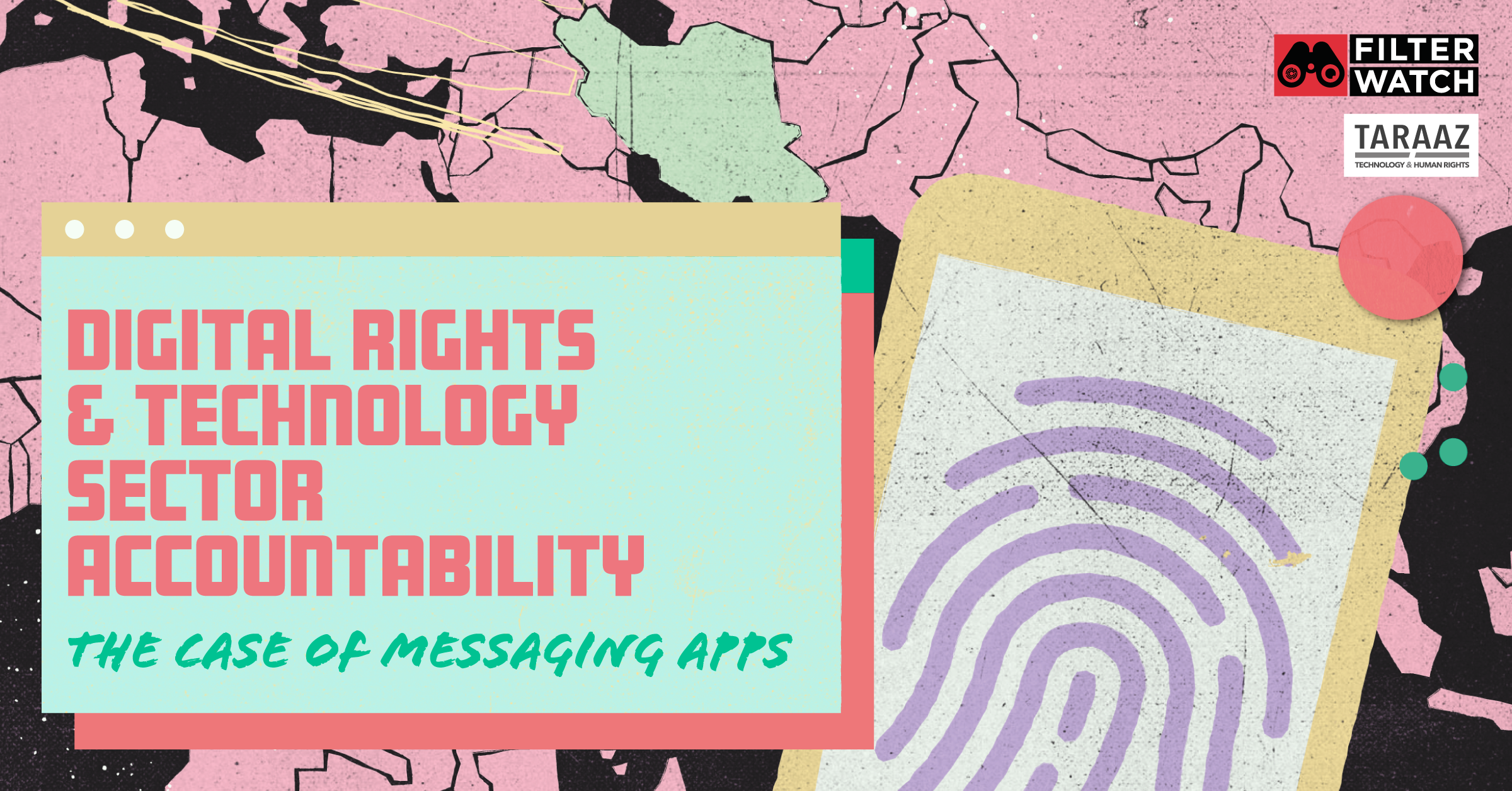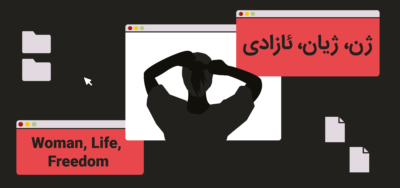Our new report “Digital Rights & Technology Sector Accountability in Iran: The Case of Messaging Apps” examines the role of a frequently overlooked, but vitally important group of actors in the digital ecosystem of Iran: Iranian private-sector technology companies. From January to September 2020, Filterwatch worked with the technology and human rights research organisation Taraaz to examine the digital rights commitments of a number of technology companies in Iran. This report highlights how technology companies’ activities impact the digital rights of Iranians and summarises companies’ responsibilities in upholding those rights.
The report’s methodology is based on an adapted version of the 2019 Ranking Digital Rights (RDR) Corporate Accountability Index. Since 2015, the RDR Corporate Accountability Index has evaluated “the world’s most powerful internet, mobile, and telecommunications companies’ disclosed policies and practices affecting users’ freedom of expression and privacy.” Digital rights researchers around the world, including in Russia, Kenya, Senegal, countries from the Arab region, India, and Pakistan, have adapted the methodology to assess companies in their country and to guide them towards greater transparency. Now for the first time, the RDR methodology is being applied to assess the policies of private technology companies in Iran.
In order to show their commitment to users’ fundamental rights, the first step for companies is to disclose their policies and practices affecting those rights. Transparency enables the demand for accountability; once policies and practices are available publicly, journalists can use them in their investigative reporting; technology auditors can test products to ensure what is said matches actual practice; and civil society groups and legal scholars can evaluate the pitfalls and strengths of corporate policies. By publishing this report, we hope to bring attention to the importance of transparency and human rights — as laid out in the UN Guiding Principles on Business and Human Rights — in relation to Iranian technology companies.
In this iteration, we assessed the publicly disclosed policies and practices of the messaging services used on a daily basis by Iranian internet users. This includes four domestic Iranian messaging services (Soroush, Gap, Bale, and BisPhone) in addition to two of their foreign counterparts: WhatsApp and Telegram. Although we decided to rank messaging apps, readers should know that almost all indicators used to assess messaging apps apply to other mobile services and internet companies as well.
Download the report | Download our data | Access our assessment workbook




